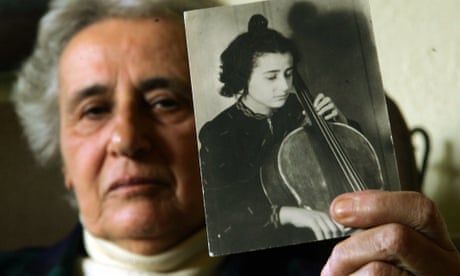
The remarkable story of conductor Alma Rosé and the musicians who survived the Holocaust by performing amid horrific conditions
When 13-year-old Pearl Pufeles disembarked from the cattle car at Auschwitz in March 1944, she was surprised to hear the strains of Dvořák and Smetana wafting towards her. “Gosh,” thought the Czechoslovakian schoolgirl, “this can’t be that bad if they play music here.” But it was that bad and, indeed, so much worse. Pearl and her twin sister Helen were swiftly selected as laboratory fodder for Dr Josef Mengele’s grotesque medical experiments.
It isn’t clear which orchestra Pearl had heard that day. Auschwitz was a 15 sq mile complex with multiple sub-camps and there were at least six “official” orchestras staffed by prisoners who had been funnelled into southern Poland from all over Europe. Some of these orchestras concentrated on the classical repertoire, albeit without the Jewish composers Mendelssohn and Mahler. Others specialised in Sunday afternoon concerts of operetta and dance music. By far the likeliest music to be heard around the camps, though, was jaunty military marches, played loudly every morning as the prisoners set off for work, and then again in the evening as they limped back to camp, dragging their dying colleagues behind them.
Continue reading...